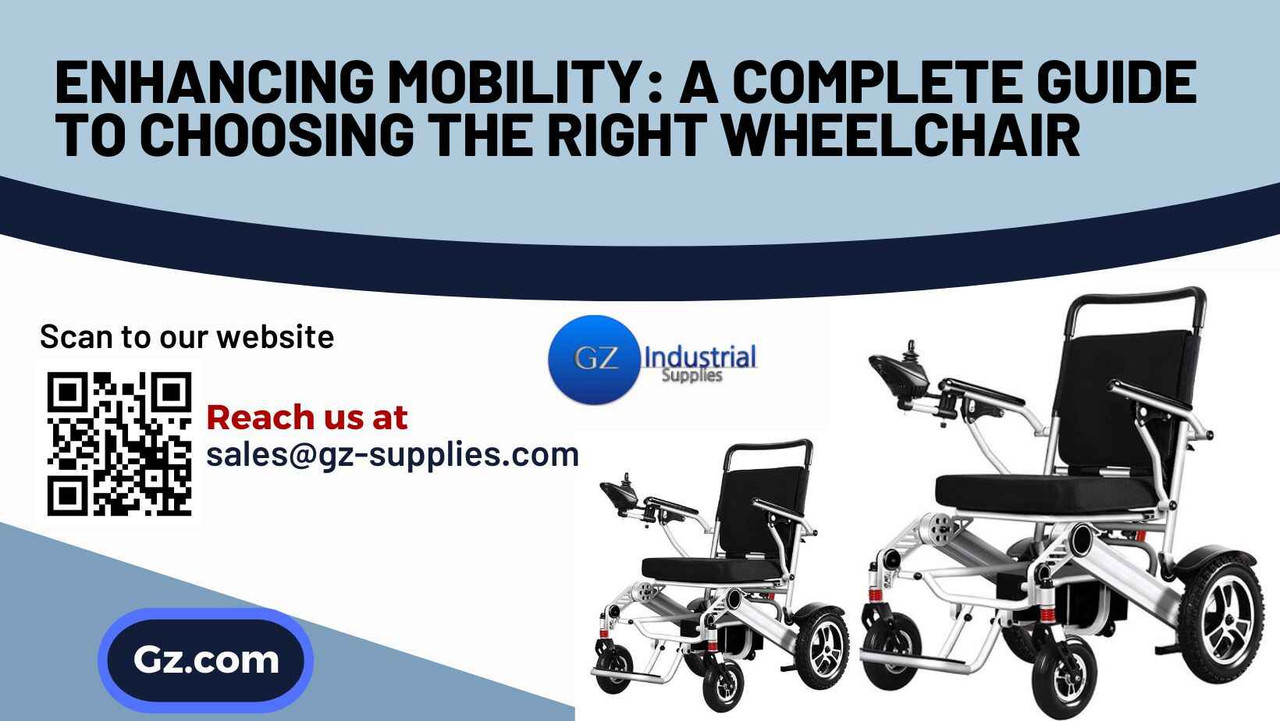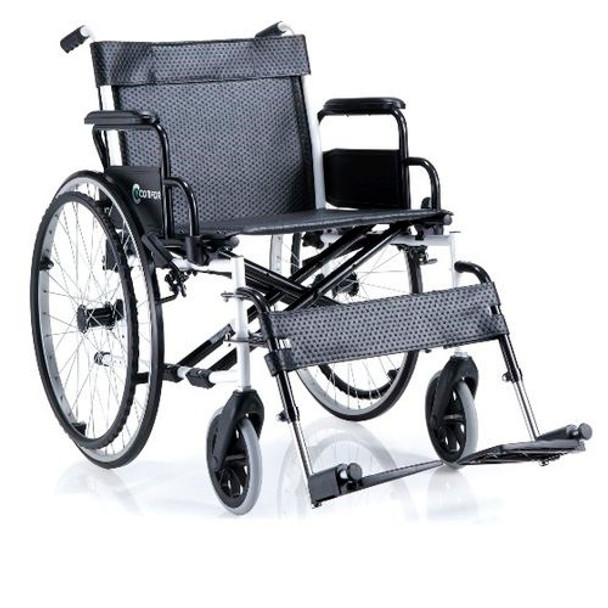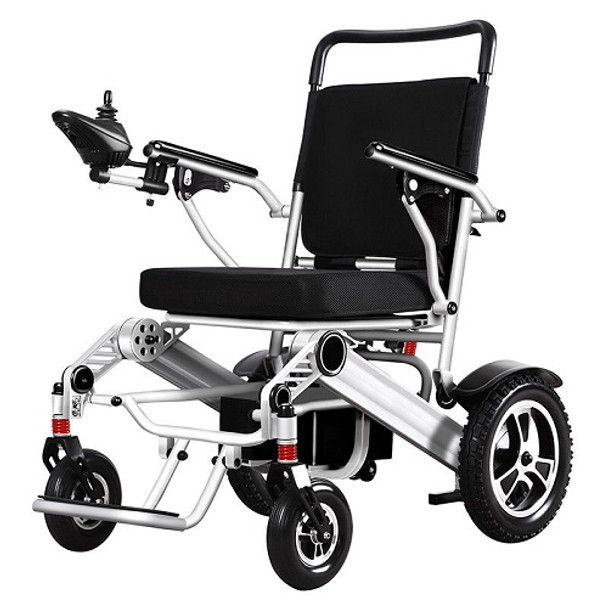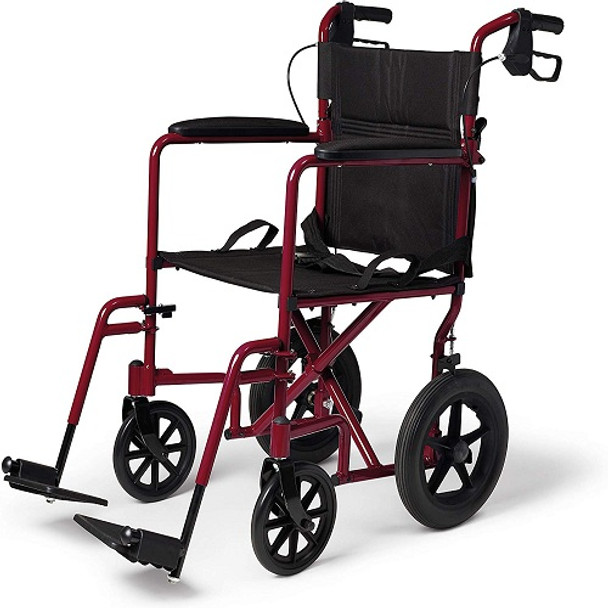Enhancing Mobility: A Complete Guide to Choosing the Right Wheelchair
Key Takeaways
Introduction
Mobility challenges can significantly impact one’s quality of life, making it essential to choose the right wheelchair. Whether you’re dealing with a temporary injury, chronic condition, or age-related mobility issues, Selecting the right wheelchair is crucial for enhancing mobility and improving quality of life, especially for those with temporary or permanent mobility challenges.
With a wide range of options available, from manual to electric models, choosing a wheelchair depends on factors such as the user's physical condition, environment, and intended use. In Nigeria, affordability and terrain are significant considerations, making manual wheelchairs the most popular choice.
Features like frame material, seat comfort, portability, and customization options are also key factors to evaluate when selecting a wheelchair. A well-chosen wheelchair not only provides independence but also ensures long-term comfort and safety for the user.
MANUAL WHEEL CHAIR
Types of Wheelchairs
Wheelchairs come in various types, each designed to meet different needs and levels of mobility. Below are the common categories:
1. Manual Wheelchairs
Manual wheelchairs are operated by the user or an attendant pushing the wheelchair. They are the most common type in Nigeria due to their affordability and simplicity. Within manual wheelchairs, there are several subtypes:
1. Standard Manual Wheelchairs: Designed for basic use, these wheelchairs are usually heavier and less adjustable. They are ideal for short-term use or occasional mobility needs.
2. Lightweight Manual Wheelchairs: Lighter and easier to maneuver than standard ones, they offer better flexibility and are ideal for people who need to use a wheelchair regularly.
3. Ultra-lightweight Manual Wheelchairs: These are even lighter and designed for people with very active lifestyles. They are often customizable and easier to transport.
2. Electric Wheelchairs
Electric wheelchairs are motorized and can be operated using a joystick or other control mechanisms, making them ideal for people with limited upper body strength. They are more expensive than manual options but offer greater independence, especially for those who cannot propel a manual wheelchair.
3. Transport Wheelchairs
These are designed for temporary use and are typically pushed by an attendant. They are lightweight, easy to fold, and perfect for travel or short-term use. Transport wheelchairs are not suitable for independent users as they lack the large rear wheels needed for self-propulsion.
4. Sports and Specialty Wheelchairs
For individuals who lead active lifestyles, including those who participate in sports like basketball, tennis, or racing, specialized wheelchairs are available. These are built for performance, with features like lightweight frames and enhanced mobility.
AUTOMATIC WHEEL CHAIR 30KG
Key Features of Wheelchairs
When choosing a wheelchair, it's essential to understand the various features that can impact its performance, comfort, and durability. Here are some key features to look out for:
1. Frame Material
The material of the wheelchair frame significantly affects its weight and durability. Common materials include:
1. Steel: Durable but heavy, making it harder to transport or push.
2. Aluminum: Lightweight and strong, making it easier to maneuver.
3. Titanium: Lighter and more durable than aluminum, but often more expensive.
2. Seat and Backrest
Comfort is paramount, especially for long-term users. Look for cushioned seats and backrests that provide proper support. Adjustable backrests can also offer more comfort and help with posture.
3. Wheels and Tires
Wheelchairs come with different types of wheels depending on the user’s needs.
1. Solid Tires: Durable and puncture-proof, ideal for indoor use or smooth surfaces.
2. Pneumatic Tires: Air-filled tires that provide better shock absorption, making them suitable for outdoor use or rough terrain. However, they require more maintenance as they can puncture.
4. Brakes and Safety Features
A good wheelchair should have effective braking systems. Manual wheelchairs often come with handbrakes, while electric wheelchairs have motorized brakes. Other safety features include anti-tip wheels, seat belts, and footrests that ensure the user’s comfort and safety.
5. Portability and Foldability
If you need to transport the wheelchair frequently, consider a foldable model. Foldability makes the wheelchair easier to store and carry, particularly when traveling.
6. Customization Options
Many wheelchairs come with customizable options to suit individual needs. This can include adding cushions, footrests, headrests, or specialized seating systems for extra comfort and support.
Medline Lightweight Transport Wheelchair
Factors to Consider When Choosing a Wheelchair
Selecting the right wheelchair depends on several factors. Here are the most critical aspects to consider:
1. Mobility Needs and Usage: Determine whether the wheelchair will be used indoors, outdoors, or both. For example, if the user requires a wheelchair primarily for indoor use, a lighter model with solid tires may be preferable. However, if they need to navigate rough terrain, a wheelchair with pneumatic tires and a sturdy frame will be more suitable.
2. User’s Physical Condition: The wheelchair should match the user’s strength, weight, and height. A heavier person may need a reinforced frame, while someone with limited upper body strength may benefit from an electric wheelchair.
3. Environment and Terrain: Consider the Nigerian environment. If the wheelchair will be used on rough or uneven terrain, outdoor-friendly models with larger wheels and robust frames will be necessary.
4. Comfort and Ergonomics: Comfort is essential, particularly for long-term use. Look for a wheelchair with adjustable backrests, ergonomic seat designs, and additional padding for better posture and reduced fatigue.
5. Wheelchair Price in Nigeria: The cost of a wheelchair can vary widely based on the type, features, and brand. Manual wheelchairs are generally more affordable, ranging from ₦50,000 to ₦200,000 depending on the material and features. Electric wheelchairs can cost upwards of ₦500,000 or more, depending on the level of customization and technology.
6. Availability and After-Sales Support: When purchasing a wheelchair, consider where you can buy it and the support available after purchase. Look for vendors that offer warranties, maintenance services, and replacement parts, especially if you are buying an electric wheelchair.
Comparing Wheelchair Prices in Nigeria
When it comes to buying a wheelchair in Nigeria, prices can vary significantly depending on the type, materials used, and features offered. Below is a general breakdown of what you can expect when searching for the right wheelchair.
1. Manual Wheelchairs: Manual wheelchairs are typically the most affordable option, with prices ranging from ₦50,000 to ₦200,000. The price variation is influenced by factors like the weight of the wheelchair, frame material, and additional features such as padded seats, adjustable armrests, or foldability. Lightweight and ultra-lightweight manual wheelchairs tend to be more expensive due to the premium materials used, such as aluminum or titanium, but they offer greater portability and ease of use.
2. Electric Wheelchairs: Electric wheelchairs are a more advanced option with a significantly higher price tag, often ranging from ₦500,000 to over ₦1 million. The cost reflects the inclusion of motorized systems, advanced control mechanisms, and additional features like reclining backrests and customizable speed settings. These wheelchairs are ideal for individuals who need greater independence and cannot manually propel themselves.
3. Second-hand Options: If you are looking for a more budget-friendly alternative, second-hand wheelchairs are an option. While the price of used wheelchairs varies depending on their condition, you can often find manual wheelchairs for as low as ₦30,000. However, it's essential to carefully inspect used wheelchairs for any wear and tear that may affect their functionality or safety.
Where to Buy Wheelchairs in Nigeria
Finding the right place to purchase a wheelchair in Nigeria is crucial to ensure you get a high-quality product with proper after-sales support. Below are some reliable sources:
1. Physical Stores: Many cities in Nigeria, such as Lagos, Abuja, and Port Harcourt, have medical supply stores where you can find both manual and electric wheelchairs. Popular stores include JNCI Medical Equipment in Lagos and Skye Medical Supplies in Abuja. These stores often have a range of models to test before buying, allowing you to choose the most comfortable and suitable option.
2. Online Shopping Platforms: For convenience, you can also purchase wheelchairs online. Websites like Jumia, Konga, and GZ Industrial Supplies offer a variety of wheelchair options at different price points. GZ Industrial Supplies, in particular, is known for its range of durable and affordable mobility aids, including manual and electric wheelchairs. You can visit their website at GZ Industrial Supplies to explore available options and get expert assistance.
Frequently Asked Questions
1. What is the average price of a manual wheelchair in Nigeria?
Manual wheelchairs in Nigeria typically range from ₦50,000 to ₦200,000, depending on the materials, features, and brand.
2. How do I know which type of wheelchair is best for my needs?
Consider factors such as your mobility requirements (indoor or outdoor use), physical condition, budget, and whether you need a manual or electric wheelchair. Consult with a medical professional for personalized advice.
3. Are there options for renting or buying used wheelchairs in Nigeria?
Yes, some suppliers offer rental services, and second-hand wheelchairs are available at a lower cost. However, ensure any used wheelchair is in good working condition before purchasing.
4. What accessories can be added to a manual wheelchair for more comfort?
Accessories such as cushioned seats, footrests, armrests, headrests, and adjustable backrests can enhance comfort and make the wheelchair more ergonomic.
5. How do I maintain my wheelchair to ensure its longevity?
Regularly check the wheels, brakes, and frame for any wear and tear. Clean the seat and backrest, and ensure that tires are properly inflated. Electric wheelchairs should have their batteries checked and charged regularly.
Conclusion
Choosing the right wheelchair is essential for improving mobility, independence, and overall quality of life. With various types of wheelchairs available, from manual to electric, it’s crucial to assess your specific needs, mobility requirements, and budget. In Nigeria, where price, terrain, and availability play significant roles, understanding the features of different wheelchair models and knowing where to buy them is key to making an informed decision. Whether you’re looking for a lightweight manual wheelchair for easy portability or a fully powered electric wheelchair for greater independence, taking the time to evaluate the options ensures long-term comfort and functionality.
For more wheelchair options and expert guidance on choosing the best fit for your needs, Contact us. Their extensive range of mobility aids and after-sales support make them a trusted supplier in Nigeria.












